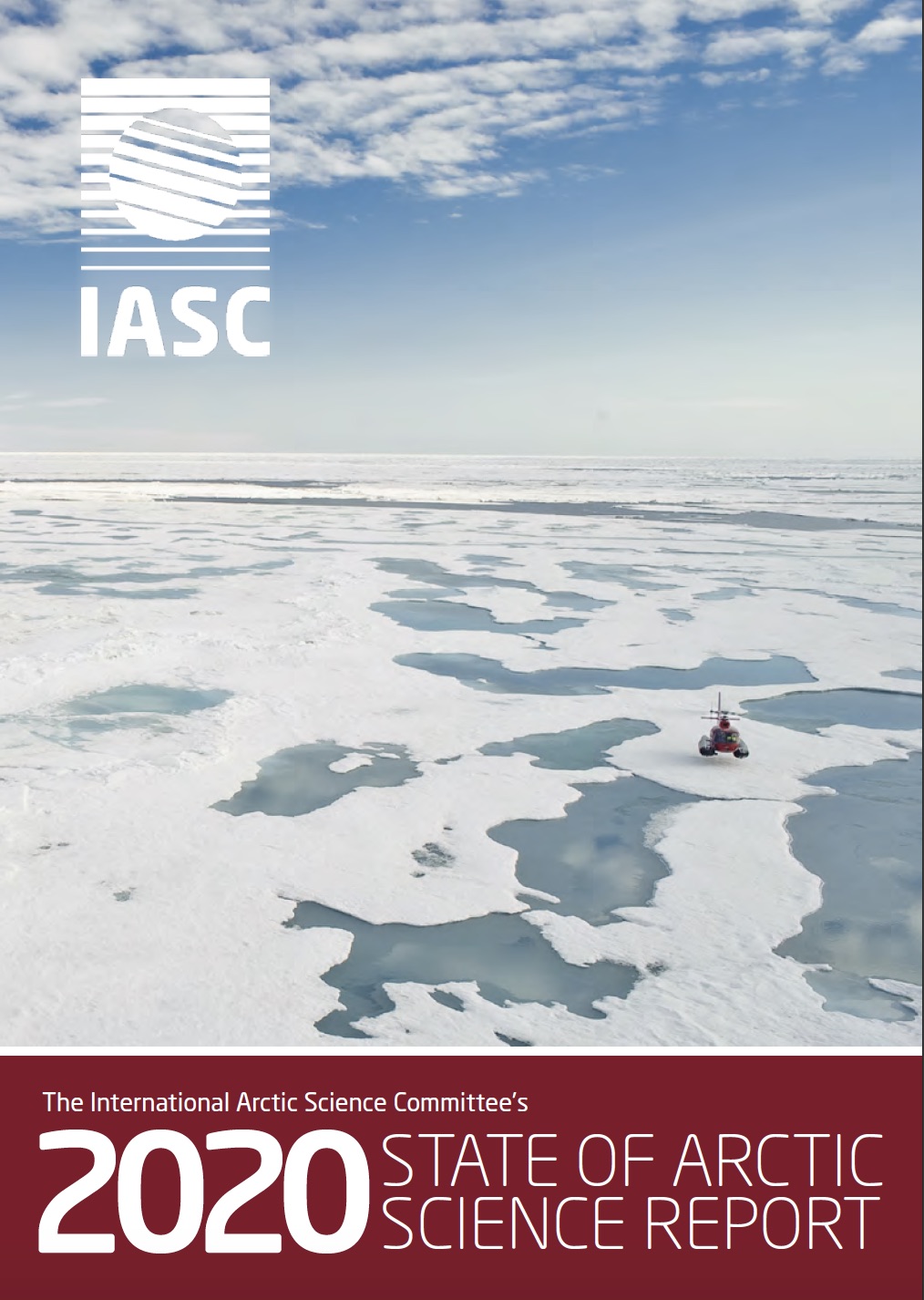 IASC's 2020 State of Arctic Science Report aims to be a cohesive synthesis of international Arctic research activities and priorities, as gathered from the Arctic research community itself. Arctic science is moving faster than ever, and so this report is aimed at Arctic science agencies, Arctic science managers, and Arctic science users including a wide range of decisionmakers and policymakers, to help all Arctic science stakeholders stay up to date on Arctic research.
IASC's 2020 State of Arctic Science Report aims to be a cohesive synthesis of international Arctic research activities and priorities, as gathered from the Arctic research community itself. Arctic science is moving faster than ever, and so this report is aimed at Arctic science agencies, Arctic science managers, and Arctic science users including a wide range of decisionmakers and policymakers, to help all Arctic science stakeholders stay up to date on Arctic research.
IASC, the International Arctic Science Committee, was founded in 1990 with a mission of encouraging and facilitating cooperation in all aspects of Arctic research, in all countries engaged in Arctic research, and in all areas of the Arctic region. IASC is a connector – connecting scientists across international, disciplinary, and cultural boundaries and connecting with those who do research with those who seek the outcomes of that research.
One way in which IASC does this is by providing a collective voice to the international Arctic research community. Decadally, this is addressed through the International Conference on Arctic Research Planning process (e.g., ICARP-III’s “Integrating Arctic Research - A Roadmap for the Future”). However, with rising temperatures, geopolitical interests, the initiation of the Arctic Science Ministerial meetings, and an increasingly active landscape of international Arctic (science) organizations, Arctic science is moving faster than ever.
IASC is grounded in our community of scientists and aims to provide a consensus voice – by reaching out to their national communities, connecting internationally, and reporting out. This report presents a synthesis of a breadth of input, but it is not exhaustive, as input came only through the IASC Working Groups. Indeed, there are many other NGOs, IGOs, insitutions, nonprofits, Indigenous Peoples’ Organizations, companies, countries, and more working in the Arctic knowledge space. Nevertheless, this report comes from scientists themselves.
Each of the 23 countries represented in IASC’s scientific Working Groups (Atmosphere, Cryosphere, Marine, Social & Human, Terrestrial) was asked to submit a summary detailing the research priorities and activities in their country. This corpus of content was compiled by each Working Group’s leadership. These were condensed into this report here, then reviewed by the IASC Executive Committee and Council with an eye towards interdisciplinary connections. For national and/or disciplinary breakdowns, please contact IASC Working Group members directly (contact information is available at https://iasc.info).
Following an internal recommendation, this report, IASC’s 2020 State of Arctic Science Report is aimed at Arctic science agencies, Arctic science managers, and Arctic science users including a wide range of decisionmakers and policymakers – e.g., national research councils and scientific foundations, Arctic ministers and ambassadors, international science bodies, and more. It will also be delivered to the organizers of the 3rd Arctic Science Ministerial.
It is exciting to be able to learn from the insights of the Arctic science community, so please read on and also join IASC in thanking the community for their time and input.
Download the report here: https://iasc.info/images/media/print/SAS2020_web.pdf
